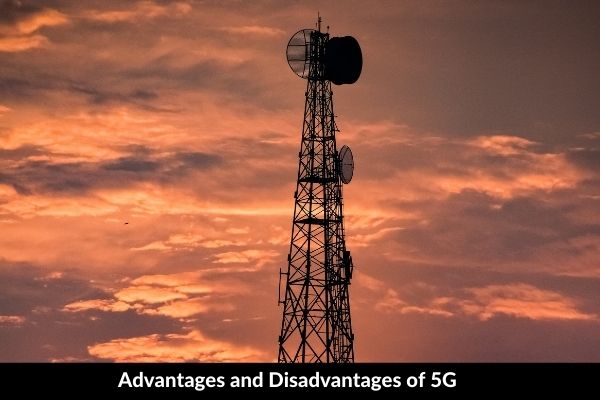Advantages and Disadvantages of 5G
The extraordinary fifth generation technology is the latest cellular technology which is 10 times faster than the 4G and can handle thousands of traffic as compared to today’s networks. Moreover, it is the foundation of Iot (Internet of things) and is ready to produce technological advances in various sectors. When 4G was first introduced, users were astonished by the speed and capabilities of such an advanced network. Now we are entering into the realms of 5G and that is about to revolutionize the way everybody uses the internet in today’s digital era!
But along with the benefits, 5G technology is accompanied with some drawbacks too. Let’s us have a look at some of the obvious advantages and disadvantages of 5G technology.

Advantages of 5G network:
Enhanced data transmission
With the help of the 5G network, we can enjoy a higher network speed while downloading and accessing any file from the internet. Imagine the quick and intense experience you will get when you will be close enough to one of the 5G towers with your 5G phone. Within just fractions of seconds, you will be able to download all of the HD programs in a few seconds. Buffering will be something your device will forget.
Also Read: Advantages And Disadvantages of Technology
An aide to IoT
The 5G network is the base of IoT as it succors the simultaneous connection of several devices as compared to the 4G. Now, companies will no longer have to choose among their cellular and wireless strategies as with the addition of 5G, using all devices at the same without any hurdles will be possible. Not only this, companies can also switch between cellular and Wi-Fi connectivity as per their requirements needed.
Low latency
The traffic load on a 5G network is less as compared to the earlier networks. This means that the time which is consumed by the network devices to respond to the command also gets very less. Various apps and services function identically while letting the real-time communication happen seamlessly.
Less numbers of towers:
With 5G network technology, unnecessary congestion of the tower is no longer needed. Now, having no tower to facilitate your access to the information will not bother you and you can indulge in your internet-based activities like using Facebook, Instagram, Twitter, sending or receiving email and web browsing. 5G is a blessing that makes tasks such as searching maps and directions, and reading news with all of the other users at crowded venues like sporting events, concerts and festivals really convenient for the users.
New technological opportunities:
Here we are talking about AI and virtual reality. For example, as the computer world is being transmitted to the world of other smart devices, this can open new doors for smart device technology that are not available today.
Downsides of the 5G technology
Security threats
There is no denying the fact that 5G will facilitate the way the internet works, for example it will provide an aid to IoT and can ease the connection of almost all digital devices. However, the more the number of IoT devices and components connected to 5G networks, the more fragile and vulnerable our privacy becomes and the exposure to the threats that can exploit our data increases. That is why, before using the 5G devices and networks, enterprises should weigh the use of network slicing which is a technique where a virtual network is made with all 5g networks to carry a dedicated application or service. Any loophole in any part of the carrier’s infrastructure can create serious security concerns throughout the network.
Battery drainage and heat problems
When it comes to cellular devices that are connected to 5G, batteries are not able to operate for a significant period of time. Therefore, better battery technology will be needed if anyone wants to run their phone full day on a single charge running a 5G connection. Apart from the depleted batteries issues, the problem of digital devices getting increasingly heated has also been observed.
Hike in Expenses
With all the benefits that the 5G network accompanies, the drawback that is related to its expenses cannot be ignored. The types of equipment that are needed to install 5G devices are costly and skilled engineers are required to maintain a 5G network. This directly increases the cost of 5G network deployment.
Unmatched upload and download speed
5G technology speeds up the download pace but as far as the upload speed is concerned, it is not as groundbreaking. For instance, the download speed of 5G technology is extraordinary, however, the upload speed is rarely more than 100Mbps.
latest tag:
- 5G advantages and disadvantages